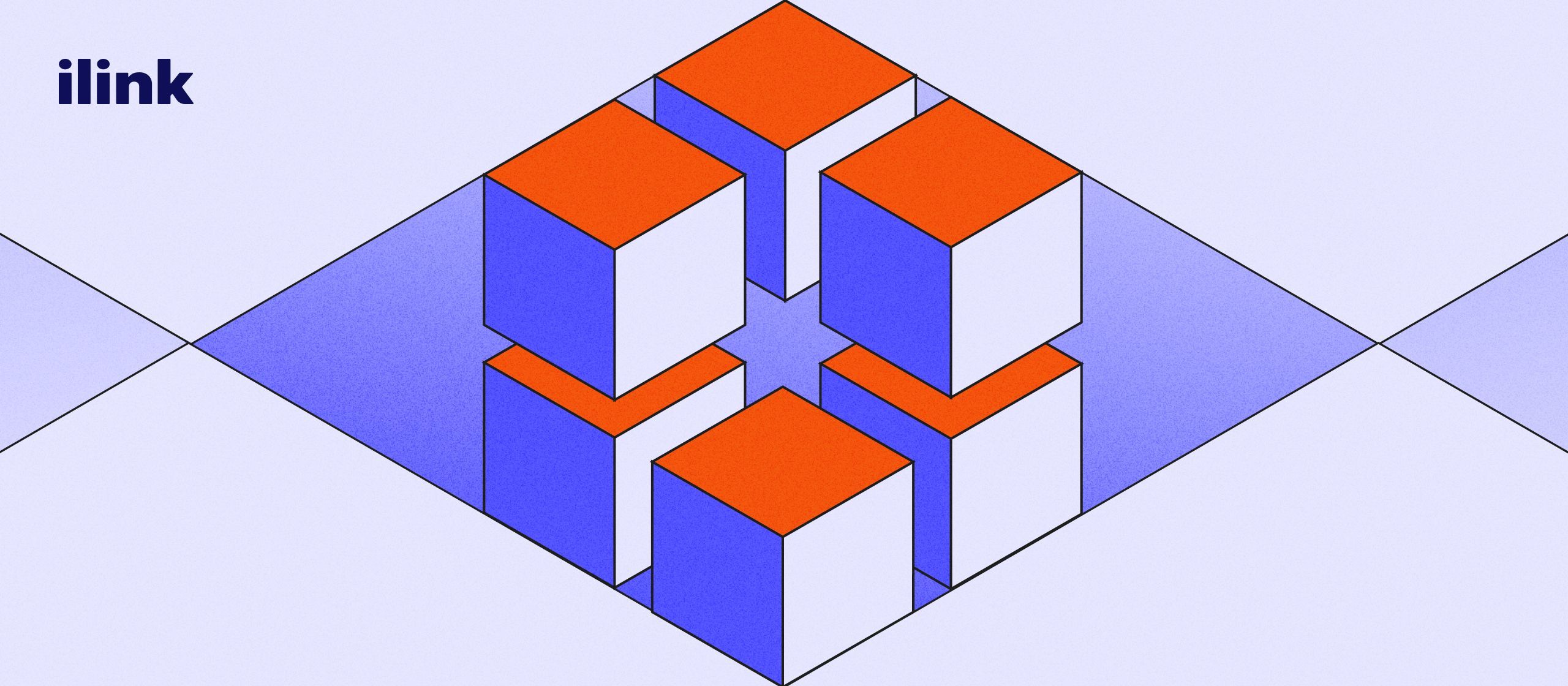Smart Contract Payments: Automating Payouts, Royalties, and Escrow with Blockchain
Introduction
Manual payments, delayed disbursements, and trust gaps still slow down modern business.
That problem shows up everywhere:
- Freelance marketplaces wait for approvals.
- Royalty networks struggle with complex splits.
- Escrow deals depend on intermediaries, paperwork, and time.
Smart contract payments solve a large part of this friction by turning payment rules into code that executes automatically on a blockchain.
As adoption grows, so does the market around it: Fortune Business Insights estimates the global smart contracts market at USD 2.14B in 2024 and projects growth to USD 12.07B by 2032.
In parallel, the broader blockchain technology market is projected by the same source to grow from USD 20.16B (2024) to USD 393.42B by 2032, reflecting how quickly “programmable finance” is becoming mainstream infrastructure.
Prepared by ilink (13+ years building blockchain, fintech, and software & application solutions).
Last updated: January, 2026.
What Are Smart Contracts
Smart contracts are self-executing agreements deployed on a blockchain.
- They run exactly as written.
- They can hold and transfer value.
- They can enforce rules without a central operator.
Ethereum’s developer documentation describes the core idea succinctly: smart contracts “define rules… and automatically enforce them via the code.”
Smart contract payments, in one sentence
A smart contract payment system is a set of on-chain contracts that releases, splits, refunds, or locks funds automatically when predefined conditions are met.
How Smart Contract Payments Work in Practice
Most real systems follow the same pattern, even if the industry differs.
Typical Payment Flow
- Funds are deposited into a contract-controlled “treasury” (often stablecoins for predictable accounting).
- Payment conditions are defined in code (milestones, time locks, approvals, delivery confirmations, revenue events).
- A trigger confirms the condition is satisfied.
- The contract executes a transfer (single payout, batch payouts, or split payouts).
- Every step is recorded on-chain for auditability and dispute reduction.
Important Detail for Real-World Conditions
Blockchains can’t directly verify off-chain events (delivery completed, content streamed, KYC cleared).
That verification usually comes from one of these mechanisms:
- Platform attestation (your backend signs an approval);
- Oracle services (specialized systems that relay verified data);
- Cryptographic proofs (increasingly used where feasible).
Want payments to run automatically instead of manually?
ilink can map your flow and suggest the safest smart contract approach.

Use Case 1: Automating Payouts
Smart contract payouts are strongest when rules are clear and repeatable.
Freelance and Gig Platforms
Payment can be tied to milestone approvals, dispute windows, or delivery acceptance.
- This reduces manual operations.
- It also makes payout timing predictable for workers.
Marketplaces and On-Demand Services
Payouts can be issued automatically after verified delivery, transaction confirmation, or a return/refund window.
Batch payments are also easier.
Instead of exporting spreadsheets and running manual transfers, the contract can distribute funds to thousands of recipients in one coordinated process.
Use Case 2: Royalties
Royalties are essentially payment logic plus accounting logic.
Smart contracts help because they can:
- Split revenue across many wallets instantly (creator, collaborator, publisher, label, platform fee);
- Apply different percentages per asset or license type;
- Make the rules visible to participants.
NFTs and Creator Royalties
When implemented via enforced marketplace logic or contract-level distribution, creators can receive automatic payouts on primary sales and predefined splits on secondary transactions (where supported by the trading venue).
Use Case 3: Decentralized Escrow
Escrow is a trust problem disguised as a payment problem.
How Smart Contract Escrow Works
- Buyer deposits funds into escrow contract;
- Seller delivers the good/service;
- Release happens when conditions are met (or after a dispute window);
- Refunds are automatic if conditions fail.
This reduces reliance on third-party escrow agents for many digital transactions.
Why This Matters Right Now
In many industries, your ability to pay partners fast, split revenue accurately, and settle globally affects retention, marketplace liquidity, and unit economics.
Cross-border speed has improved at the network level, but “end-to-end” delivery still lags in many corridors.
- SWIFT reports that 90% of cross-border payments on its network reach the destination bank within an hour.
- At the same time, a BIS bulletin notes that only 35% of global cross-border retail payments are credited within one hour (vs. a 75% target), which shows how delays often persist beyond the messaging rail and into the beneficiary leg, compliance steps, and local processing.
Costs are also under pressure.
The World Bank’s Remittance Prices Worldwide highlights a global average remittance cost of 6.49% (a signal that moving money internationally can remain expensive, especially for smaller tickets).
For enterprises, the “why now” is operational.
Finance teams are increasingly asked to reconcile faster, reduce leakage, and provide real-time visibility into cash movement.
A 2025 Modern Treasury survey/press release states that 9 in 10 companies struggle with payment operations, and companies expect automation to drive outcomes like faster, more accurate reconciliation (47%) and increased revenue (45%).
This is exactly where smart contract payments fit.
They turn payout rules, royalty splits, and escrow conditions into auditable automation, reducing manual work and making settlement more predictable across partners and platforms.
Advantages Over Traditional Systems
- Faster payments. Money is released automatically when the условия are met, so you don’t wait for manual approvals or bank processing windows.
- Fewer mistakes. Rules are written once and executed the same way every time, which reduces human error in payouts and splits.
- Lower costs in operations. Less manual work for finance/support teams means fewer hours spent on reconciliations, re-checks, and reprocessing.
- Fewer disputes. Both sides can see the rules and the payment status, so there are fewer “you didn’t pay / I did pay” situations.
- Automatic splitting of money. Royalties, commissions, partner fees, and multi-party payouts can be distributed instantly without spreadsheets and manual calculations.
- Built-in escrow. Funds can be safely locked until delivery/approval happens, which increases trust between parties who don’t know each other.
- Clear, auditable history. Every action is recorded, which makes reporting, audits, and troubleshooting simpler.
- Works globally. You can pay partners in different countries using the same logic, often with fewer cross-border complications.
- More predictable processes. Payments happen according to agreed rules, not depending on who is online, which department is busy, or where delays occur.
- Easier to build new business models. You can launch things like pay-per-use, automated subscriptions, revenue sharing, or real-time royalties that are hard to manage manually.
Let's take a closer look at how smart contract-based payment systems create measurable value in three buckets: lower operating cost, better cashflow control, and new revenue mechanics.
- Lower operating cost through “straight-through” execution
When payment logic is encoded, the system can run with fewer manual touches.
Ardent Partners’ State of ePayables 2025 benchmarks illustrate the size of the opportunity in payment-adjacent operations: average all-in cost to process a single invoice is $9.84, with an average processing time of 8.2 days and an invoice exception rate of 18.4%.
The same report notes that Best-in-Class AP teams achieve per-invoice processing costs 79% lower and processing times 79% faster than peers, with exception rates 47% lower.
Smart contract payments aim for a similar “less handling, fewer exceptions” effect on payouts, royalties, and escrow because execution is automatic once conditions are satisfied.
Example: operational savings (illustrative math using Ardent benchmarks)
If a business handles 50,000 payable or payout-like transactions per year and can move from “average” manual-like handling to Best-in-Class automation performance:
- Cost per transaction: $9.84 → about $2.07 (79% lower).
- Savings per transaction: ~$7.77.
- Annual savings: ~$388,500 (50,000 × $7.77).
This is a practical way to estimate how automation-grade payment rails can reduce back-office expense, even before considering fraud/dispute reductions.
Faster settlement improves cashflow, partner retention, and platform liquidity
When time-to-pay drops, marketplaces typically see better supply retention (freelancers stay active), fewer support tickets (“where is my money?”), and smoother growth because payouts don’t bottleneck operations.
Using Ardent’s benchmark logic as a proxy for cycle-time improvement: average processing time is 8.2 days, while Best-in-Class is ~1.7 days (79% faster).
For enterprises, that speed can translate into:
- Fewer urgent manual escalations;
- Faster month-end certainty on what was paid vs. pending;
- More consistent partner experience for marketplaces and affiliate programs.
2. Reduced leakage from fees and intermediaries
Traditional systems layer fees (payment processing, FX spreads, escrow charges, and platform commissions).
In some payment categories, fee pressure is simply structural.
For card acceptance, reported “average” processing rates are often in the ~2–3% range depending on source and card mix.
For escrow-like services in digital commerce, escrow providers may charge percentage-based fees (for example, escrow.com lists 2.4%–2.6% tiers for certain ranges, plus additional fees in some cases).
Smart contract escrow doesn’t magically remove all costs (you still have network fees and often compliance costs), but it can reduce reliance on third-party escrow and streamline the release/refund workflow.
Example: expense reduction via automation + fewer exceptions
Ardent reports an average invoice exception rate of 18.4%.
If exceptions drop by 47% (Best-in-Class benchmark), the effective exception rate falls to ~9.8%.
In payout/royalty systems, “exceptions” often mean manual investigations, support tickets, partner disputes, and reprocessing.
Reducing exception volume tends to cut support load and speeds up settlement, which indirectly lowers operating expenses and improves partner satisfaction.
3. New revenue mechanics (especially for platforms)
Smart contracts can enable productized monetization that’s hard to run manually at scale:
- Automated revenue splits for multi-party deals;
- Programmable royalties for licensing models;
- Escrow-backed high-ticket transactions that unlock more conversions by increasing trust.
This is consistent with why payment ops modernization is increasingly tied to growth.
In the Modern Treasury survey/press release, companies explicitly link payments automation to increased revenue expectations (45%).
Want to reduce operating costs?
ilink can review your use case and suggest the right smart contract approach.

Where Smart Contract Payments Can Fail
- Smart Contract Bugs and Exploits
If logic is wrong, funds can move incorrectly at machine speed.
Chainalysis reported nearly USD 2.2B stolen from hacks in 2024.
CertiK reported USD 1.67B stolen in Q1 2025 across hacks, scams, and exploits.
- Immutability and Change Management
Once deployed, on-chain logic is hard to change safely.
Ethereum documentation highlights that smart contracts are “immutable by design.”
- Off-Chain Dependencies
If your system depends on off-chain verification, your trust model depends on how that data is produced and signed.
- Compliance and Consumer Protection
Depending on jurisdiction and use case, you may need KYC/AML, sanctions screening, and tax reporting.
Security and Assurance Practices That Matter
A practical standard is to treat contracts like financial infrastructure.
Audit and Readiness
OpenZeppelin’s audit guidance defines an audit as a “methodical inspection… intended to uncover vulnerabilities.”
Defense-in-Depth Controls
- Threat modeling and adversarial testing;
- Restricted admin controls and multi-sig governance;
- Rate limits, circuit breakers, pause mechanisms;
- Monitoring, alerting, and incident runbooks;
- Staged rollouts with limited funds before scaling.
Implementation Checklist
- Define what must be on-chain vs off-chain (and why).
- Choose the settlement asset and chain(s) based on fees, finality, ecosystem, and compliance constraints.
- Specify payment states and failure modes (refund paths, timeouts, dispute windows).
- Build a minimal version with limited funds and strict guardrails.
- Audit before meaningful value is stored.
- Add monitoring, alerting, and emergency controls.
- Document the trust model clearly for users and partners.
Planning to implement smart contracts?
ilink can outline the best implementation plan and next steps.

How ilink Builds Smart Contract Payment Systems
ilink designs and delivers secure, automated smart contract payment solutions for platforms and enterprises, based on 13+ years of experience in blockchain, fintech, and software/app development.
Typical delivery scope includes:
- Smart contract engineering for payouts, royalty splits, escrow, vesting, and streaming payments;
- Security-focused development practices and audit preparation;
- Wallet, dApp, and backend integration;
- Multi-chain strategy;
- Observability, monitoring, and operational runbooks;
- Compliance-ready architecture patterns.
FAQ
What Is a Smart Contract Payment
A payment executed automatically by a blockchain smart contract when predefined conditions are met.
Does a Smart Contract Replace Legal Agreements
No.
It automates execution of certain terms.
Most businesses still pair smart contracts with legal contracts for jurisdiction, remedies, and off-chain obligations.
Is Smart Contract Escrow Safer Than Traditional Escrow
It can reduce intermediary risk and improve transparency, but it introduces code risk.
Why Are Audits Critical
Because bugs can permanently misroute funds.
Sources:
Fortune Business Insights, Ethereum.org, Financial Stability Board, Chainalysis, CertiK, OpenZeppelin.
Comments (0)
Latest Posts
Learn how to build an online casino that scales: games, payment options, compliance basics, risk controls, and operational automation for growth.
Discover how automated AI call centers reduce operational costs, improve customer experience, and increase revenue. Learn about ROI, real statistics, integrations, and scalable AI solutions for modern businesses.
Don't know what blockchain services you need?
ilink can review your case and recommend a practical architecture.




